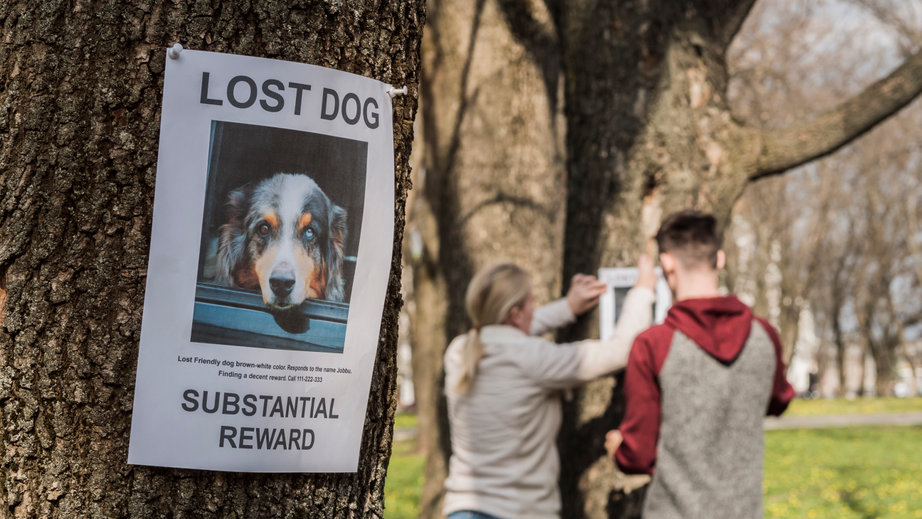Things to do at home
1. Contact your pet’s microchip company. This information can be found in your adoption paperwork or paperwork from your veterinarian when your pet was microchip. When you call the microchip company, they can blast your pets information to shelters and veterinary office around the area where you pet was lost, as well as contact you if someone calls with your found pet.
2. Create a flyer – Include the following: pet name, gender, approximate height/weight, breed, whether spayed/neutered, where pet was last seen, and if there a reward. Be sure to use a clear, recognizable photo. Many microchip companies have this feature on their website. Check out https://www.pawboost.com for free lost pet flyers.
3. If your property is fenced, keep the gate open so your dog/cat can get back into your yard.
4. Leave out recently worn clothing, or something with your scent (your sheets or pillowcases also work well).
5. Leave out food and water. If your pet comes back into the area, they are more likely to stay if resources are available.
6. Contact Pawboost and set up a free alert.
7. Post on Nextdoor, or, if you are not a member, have a friend or neighbor (they must reside in your neighborhood) post. Be sure to also tag “Dogs” or “Cats” as a topic (this will extend the reach of your post).
8. Post on Craigslist. Do not put your phone number in the ad and beware of scams that will contact you encouraging you to buy a service to help find your pet.
9. Post on your personal Facebook page as well as any local lost pet pages and groups. Below are some lost pets groups for the greater Los Angeles Area. Look for groups that are dedicated to your neighborhood or region.
10. Contact local shelters. It is recommended to contact all shelters within 30 miles.
What to do with Flyers
1. Ensure your flyer has a photo and multiple contact numbers.
2. Post many flyers in the area where your pet was lost.
3. Put some flyers on neon poster board to increase visibility.
4. Hand flyers out to people you meet on the street.
5. Bring flyers to your local veterinarians and local shelters.
6. Post around local schools, markets, and pet stores
If you see your dog running loose:
1. Do not chase them. When running at large, many dogs are in flight mode and may not recognize those they know.
2. Do not yell.
3. If you see your dog, turn sideways and squat down. In a soft, happy voice say their name and coax them towards you.
4. If your dog has a close dog friend, bring them with you when looking. The friend may help you find your dog or help your dog to come to you if found.
If you see your cat running loose:
1. Do not chase your cat.
2. Use a calm tone of voice. Frantic or panicked sounds may drive your cat away.
3. Use a bag of treats to attract your cat to you or open a can of food. The sound of either may draw your cat to you.
4. Place out a box or a space your cat can sneak into.
5. Sit quietly and be patient.
Source: https://animalcare.lacounty.gov/

